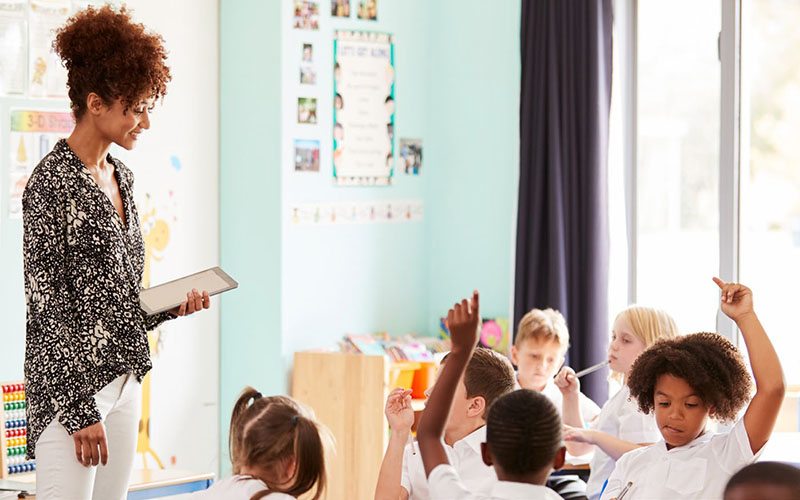Why school plans for recovery from COVID must be locally led
COVID has disrupted children’s education in multiple ways. Schools are best placed to assess the precise effects of disruption on their pupils and their communities.

24 November 2021
To aid recovery, the most immediate priority is a national recovery fund that schools can draw on and tailor to meet local needs.
The Covid pandemic has led to a prolonged period of educational disruption with few precedents from the recent past to guide recovery (Harmey and Moss, 2021; Moss et al, 2021). Our project, Learning Through Disruption, set out to explore the knowledge schools have acquired from working with children and families during the crisis. We found that schools adapted what they were doing as they became more aware of local circumstances and found new ways to address the diversity of pupils’ and families’ needs. In the process they have developed a deep and sophisticated understanding of their communities. This provides the basis for deciding how teaching and learning can best rebuild going forward.
Findings
Two-way communication between schools and homes increased during the pandemic.
Parents have turned to schools for advice on a whole range of issues affecting their children. Schools have responded to the many issues in the home and community environment that seemed to affect children’s capacity to engage and to learn. This provides a better basis upon which to draw up recovery plans than relying on test data alone.
The pandemic has had different impacts in different communities.
The incidence of the disease locally, the extent to which the pandemic impacted on patterns of parental employment and income, prepandemic digital infrastructure and connectivity, the quality of the living space at home, all made a difference to what schools and families could do. Schools are best placed to take these differences into account as they design recovery plans tailored to their setting and the elements in their context that have most affected their pupils.
COVID-19 highlighted many enduring inequalities and hardships faced by school communities that pre-dated the pandemic and were exacerbated by it.
School’s insights into their communities’ most pressing needs should form the basis for sustained investment that creates the best conditions for children to learn. Funding for recovery should be responsive to local needs and geared to the longer term.
Recommendations
Schools should have a far bigger say over how education recovery funding can be spent.
Schools have a more precise understanding of local needs and recognise how needs interact. Decisions over how to spend recovery funding appropriately should be devolved much more directly to the front line, with schools able to assess how to achieve sustained recovery planning that can have lasting impacts, including by investing in their own staffing and skills.
Schools will benefit from sharing what they have learnt during the pandemic about sustaining high quality teaching and learning in challenging times.
Schools have been at the forefront of learning how education can best adapt and respond to extraordinary circumstances. Collective reflection on what has worked and what has not, taking the local context into account, will help build a more resilient education system going forward. Such conversations should be locally-led. They should involve headteachers in talking with wider networks of support including health and social services and other area-based organisations that are relevant to rebuilding. Local Authorities may well be crucial in brokering such forums at an appropriate scale. The lessons learnt and shared will provide the best foundations for ensuring no child loses out longer term from this unprecedented period of disruption to learning. The insights shared should inform policy.
Schools should be encouraged to tailor decisions about how best to support pupil learning to their own context.
Schools may find that their own priorities differ from their neighbours. We can expect impacts on children’s learning to look different in different contexts. Good diagnostic assessment looking at needs in the round will enable each school to plan a whole curriculum response that can be sustained. They should not be distracted by focusing too tightly on short-term objectives and narrow outcome measures.
Additional funding needs to be geared to the longer term.
The emphasis in policy on “catch up” implies that funding can be appropriately focused on short-term interventions targeted at individuals or small groups. In the case of the National Tutoring Programme its efficacy in this context remains unproven. Value for money would be better assured by allowing schools to invest over the longer term in the needs they identify and in strengthening key areas of staff expertise most relevant to their own setting.
 Close
Close

